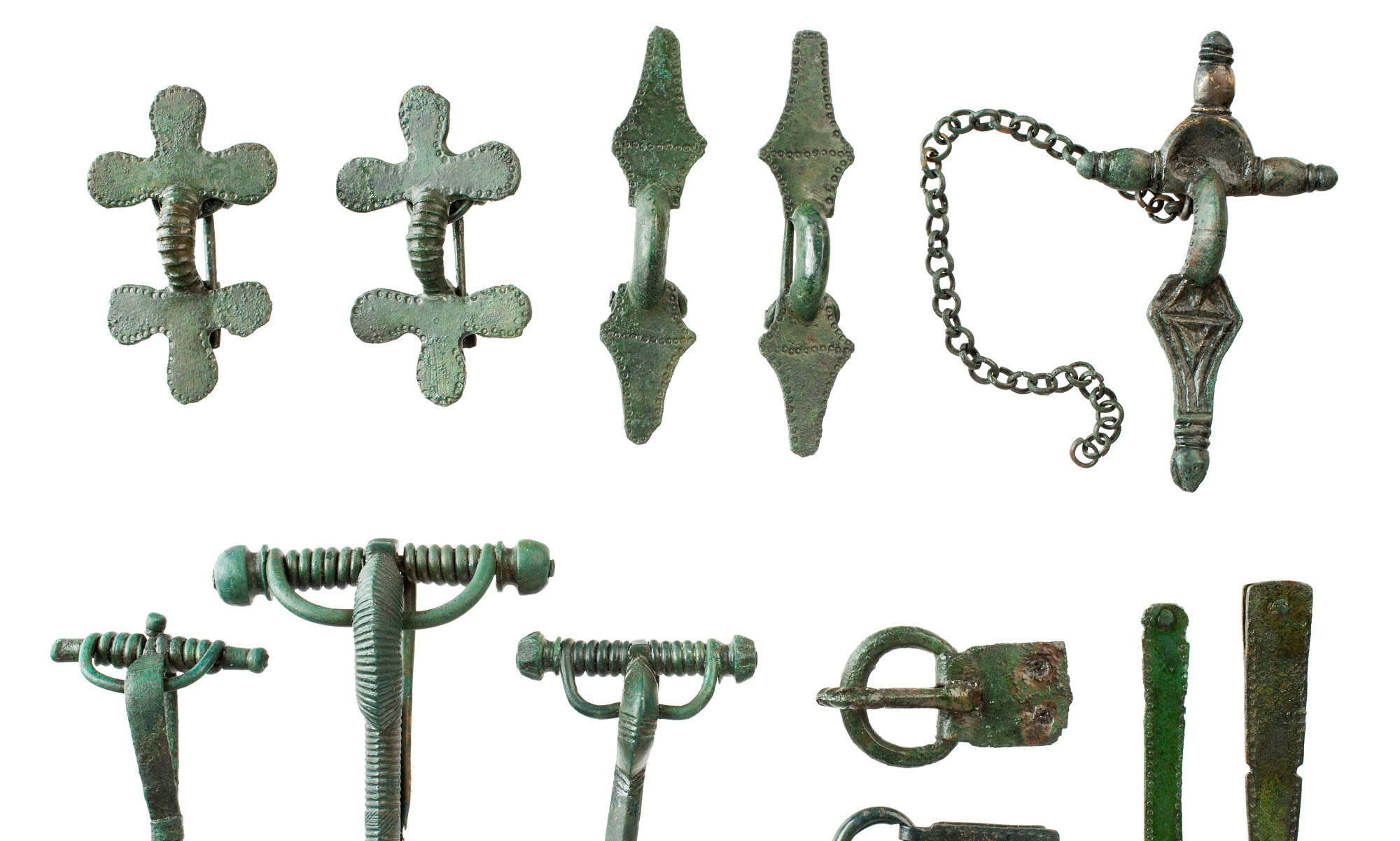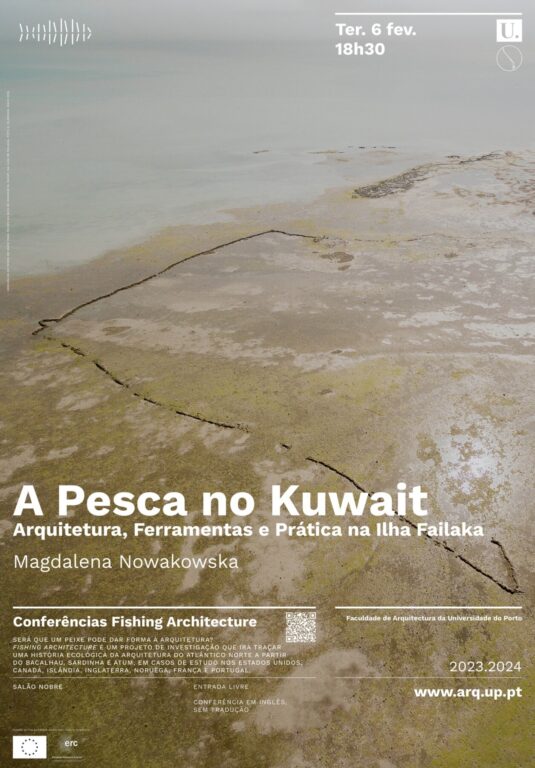Lecture by Magdalena Nowakowska
Next Tuesday February 6th, by 6.30 pm at the meeting room of the Faculty of Architecture of the University of Porto, Magdalena Nowakowska will present a lecture as part of the Fishing Architecture research project.
In a strategic island near the mouths of the Tigris and the Euphrates, where the rivers discharge into the Gulf, an underwater archaeology campaign has uncovered thirty-five built structures, most of which are fish traps. Amongst them, it was possible to identify two types of stone tidal weirs, constructions devised to catch fish and seafood in the flood zone. One type were circular stone structures, while the other were linear structures of different shapes: arched, trapezoidal, rectangular, and linear with varying sizes, sometimes up to 200 metres long. These structures were likely abandoned at the beginning of the twentieth century.
During the six research seasons on the Kuwaiti island of Failaka, undertaken between 2013 and 2019, it was possible to document these fish weirs, from the simplest structures to more complex architectural systems. These constructions combined features found in traps located in other areas of the island, while some of their characteristics can be recognized in modern structures erected by fishermen. Hence, their study allows us to assess the development of fishing techniques from the late Islamic period to the present.
The use of the Failakan traps was interpreted based on numerous analogies from Asian and Pacific regions and oral accounts and interviews with the oldest fishermen living on the island. Recording intangible cultural heritage is crucial for understanding and interpreting the tangible heritage that is recorded in the form of archaeological sites. With knowledge of Failaka’s maritime landscape, archaeological resources, and human activities related to the sea, researchers can save most of the ancient remains and protect its cultural heritage.
Since 2001, Magdalena Nowakowska has been teaching and conducting research in the Faculty of Archaeology at the University of Warsaw. Her focus is on underwater archaeology and cultural heritage, having been involved in the creation of a course that in 2014 made the University of Warsaw a full member of the UNESCO UNITWIN, Network for Underwater Archaeology. She was head of underwater research in the Crimean Peninsula and between 2013 and 2019 coordinated the project “Waterfront and Underwater Archaeology of Kuwait: Archaeorisk on the Coastal Zone around Failaka Island, Kuwait”. The Kuwaiti Polish Archaeological Mission operates on the basis of an agreement between the Polish Centre of Mediterranean Archaeology University of Warsaw and the National Council for Culture, Arts and Letters, State of Kuwait.
6th February 2024, 6.30pm
at the meeting room of Faculty of Architecture of the University of Porto
Via Panorâmica Edgar Cardoso 215, 4150-564 Porto
Informations: fish@arq.up.pt


